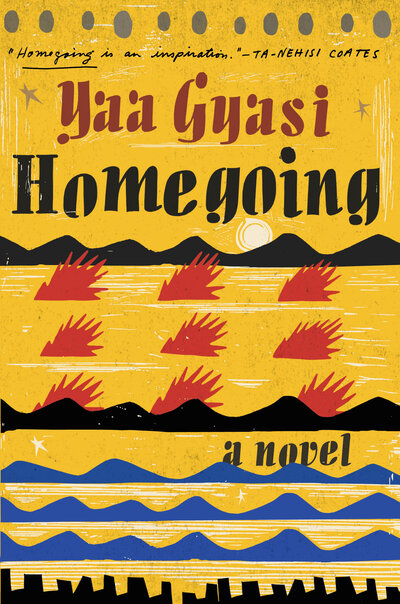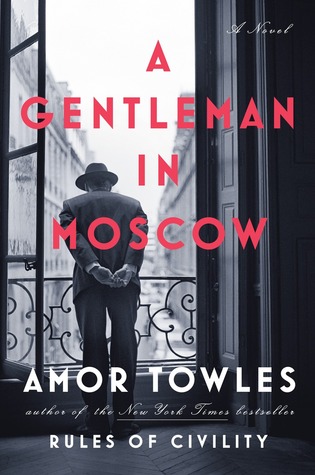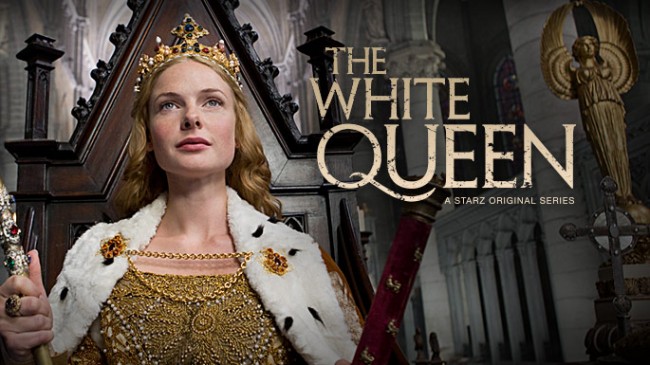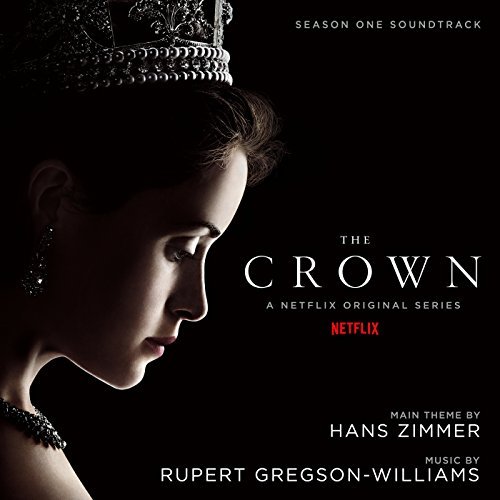The next Genre Reading Group meeting will be on Tuesday,
January 31st at 6:30pm in the Library’s conference room and the topic up for
discussion will be climate science. If
you’re uncertain where to start, there is a selection of nonfiction titles and
documentary films available to choose from at the 2nd floor reference desk.
GRG met this week for one of our biannual Salons and it was
a boisterous discussion!
Of all the glamorous stars of New York high society, none
blazes brighter than Babe Paley. Her flawless face regularly graces the pages
of Vogue, and she is celebrated and adored for her ineffable style
and exquisite taste, especially among her friends—the alluring socialite Swans
Slim Keith, C. Z. Guest, Gloria Guinness, and Pamela Churchill. By all
appearances, Babe has it all: money, beauty, glamour, jewels, influential
friends, a prestigious husband, and gorgeous homes. But beneath this elegantly
composed exterior dwells a passionate woman—a woman desperately longing for
true love and connection.
Enter Truman Capote. This diminutive golden-haired genius with a larger-than-life personality explodes onto the scene, setting Babe and her circle of Swans aflutter. Through Babe, Truman gains an unlikely entrée into the enviable lives of Manhattan’s elite, along with unparalleled access to the scandal and gossip of Babe’s powerful circle. Sure of the loyalty of the man she calls “True Heart,” Babe never imagines the destruction Truman will leave in his wake. But once a storyteller, always a storyteller—even when the stories aren’t his to tell.
Truman’s fame is at its peak when such notable celebrities as Frank and Mia Sinatra, Lauren Bacall, and Rose Kennedy converge on his glittering Black and White Ball. But all too soon, he’ll ignite a literary scandal whose repercussions echo through the years. The Swans of Fifth Avenue will seduce and startle readers as it opens the door onto one of America’s most sumptuous eras.
Enter Truman Capote. This diminutive golden-haired genius with a larger-than-life personality explodes onto the scene, setting Babe and her circle of Swans aflutter. Through Babe, Truman gains an unlikely entrée into the enviable lives of Manhattan’s elite, along with unparalleled access to the scandal and gossip of Babe’s powerful circle. Sure of the loyalty of the man she calls “True Heart,” Babe never imagines the destruction Truman will leave in his wake. But once a storyteller, always a storyteller—even when the stories aren’t his to tell.
Truman’s fame is at its peak when such notable celebrities as Frank and Mia Sinatra, Lauren Bacall, and Rose Kennedy converge on his glittering Black and White Ball. But all too soon, he’ll ignite a literary scandal whose repercussions echo through the years. The Swans of Fifth Avenue will seduce and startle readers as it opens the door onto one of America’s most sumptuous eras.
In 1995, Iowa native Bill Bryson took a motoring trip around
Britain to explore that green and pleasant land. The uproarious book that
resulted, Notes from a Small Island, is one of the most acute portrayals
of the United Kingdom ever written. Two decades later, Bryson—now a British
citizen—set out again to rediscover his adopted country. In these pages, he
follows a straight line through the island—from Bognor Regis to Cape Wrath—and
shows us every pub, stone village, and human foible along the way.
Whether he is dodging cow attacks in Torcross, getting lost in the H&M on Kensington High Street, or—more seriously—contemplating the future of the nation’s natural wonders in the face of aggressive development, Bryson guides us through the old and the new with vivid detail and laugh-out-loud humor. Irreverent, endearing, and always hilarious, The Road to Little Dribbling is filled with Bill Bryson’s deep knowledge and love of his chosen home.
Whether he is dodging cow attacks in Torcross, getting lost in the H&M on Kensington High Street, or—more seriously—contemplating the future of the nation’s natural wonders in the face of aggressive development, Bryson guides us through the old and the new with vivid detail and laugh-out-loud humor. Irreverent, endearing, and always hilarious, The Road to Little Dribbling is filled with Bill Bryson’s deep knowledge and love of his chosen home.
We expect our judges to be honest and wise. Their
integrity and impartiality are the bedrock of the entire judicial system. We
trust them to ensure fair trials, to protect the rights of all litigants, to
punish those who do wrong, and to oversee the orderly and efficient flow of
justice. But what happens when a judge bends the law or takes a
bribe? It’s rare, but it happens.
Lacy Stoltz is an investigator for the Florida Board on Judicial Conduct. She is a lawyer, not a cop, and it is her job to respond to complaints dealing with judicial misconduct. After nine years with the Board, she knows that most problems are caused by incompetence, not corruption. But a corruption case eventually crosses her desk. A previously disbarred lawyer is back in business with a new identity. He now goes by the name Greg Myers, and he claims to know of a Florida judge who has stolen more money than all other crooked judges combined. And not just crooked judges in Florida. All judges, from all states, and throughout U.S. history.
What’s the source of the ill-gotten gains? It seems the judge was secretly involved with the construction of a large casino on Native American land. The Coast Mafia financed the casino and is now helping itself to a sizable skim of each month’s cash. The judge is getting a cut and looking the other way. It’s a sweet deal: Everyone is making money. But now Greg wants to put a stop to it. His only client is a person who knows the truth and wants to blow the whistle and collect millions under Florida law. Greg files a complaint with the Board on Judicial Conduct, and the case is assigned to Lacy Stoltz, who immediately suspects that this one could be dangerous. Dangerous is one thing. Deadly is something else.
The unforgettable New York Times best seller
begins with the story of two half-sisters, separated by forces beyond their
control: one sold into slavery, the other married to a British slaver. Written
with tremendous sweep and power, Homegoing traces the generations of
family who follow, as their destinies lead them through two continents and
three hundred years of history, each life indeliably drawn, as the legacy of
slavery is fully revealed in light of the present day.
Effia and Esi are born into different villages in eighteenth-century Ghana. Effia is married off to an Englishman and lives in comfort in the palatial rooms of Cape Coast Castle. Unbeknownst to Effia, her sister, Esi, is imprisoned beneath her in the castle’s dungeons, sold with thousands of others into the Gold Coast’s booming slave trade, and shipped off to America, where her children and grandchildren will be raised in slavery. One thread of Homegoing follows Effia’s descendants through centuries of warfare in Ghana, as the Fante and Asante nations wrestle with the slave trade and British colonization. The other thread follows Esi and her children into America. From the plantations of the South to the Civil War and the Great Migration, from the coal mines of Pratt City, Alabama, to the jazz clubs and dope houses of twentieth-century Harlem, right up through the present day, Homegoing makes history visceral, and captures, with singular and stunning immediacy, how the memory of captivity came to be inscribed in the soul of a nation.
Effia and Esi are born into different villages in eighteenth-century Ghana. Effia is married off to an Englishman and lives in comfort in the palatial rooms of Cape Coast Castle. Unbeknownst to Effia, her sister, Esi, is imprisoned beneath her in the castle’s dungeons, sold with thousands of others into the Gold Coast’s booming slave trade, and shipped off to America, where her children and grandchildren will be raised in slavery. One thread of Homegoing follows Effia’s descendants through centuries of warfare in Ghana, as the Fante and Asante nations wrestle with the slave trade and British colonization. The other thread follows Esi and her children into America. From the plantations of the South to the Civil War and the Great Migration, from the coal mines of Pratt City, Alabama, to the jazz clubs and dope houses of twentieth-century Harlem, right up through the present day, Homegoing makes history visceral, and captures, with singular and stunning immediacy, how the memory of captivity came to be inscribed in the soul of a nation.
In the winter of 1885, decorated war hero Colonel Allen
Forrester leads a small band of men on an expedition that has been deemed
impossible: to venture up the Wolverine River and pierce the vast, untamed
Alaska Territory. Leaving behind Sophie, his newly pregnant wife, Colonel
Forrester records his extraordinary experiences in hopes that his journal will
reach her if he doesn't return--once he passes beyond the edge of the known
world, there's no telling what awaits him.
The Wolverine River Valley is not only breathtaking and forbidding but also terrifying in ways that the colonel and his men never could have imagined. As they map the territory and gather information on the native tribes, whose understanding of the natural world is unlike anything they have ever encountered, Forrester and his men discover the blurred lines between human and wild animal, the living and the dead. And while the men knew they would face starvation and danger, they cannot escape the sense that some greater, mysterious force threatens their lives.
Meanwhile, on her own at Vancouver Barracks, Sophie chafes under the social restrictions and yearns to travel alongside her husband. She does not know that the winter will require as much of her as it does her husband, that both her courage and faith will be tested to the breaking point. Can her exploration of nature through the new art of photography help her to rediscover her sense of beauty and wonder?
The truths that Allen and Sophie discover over the course of that fateful year change both of their lives--and the lives of those who hear their stories long after they're gone--forever.
The Wolverine River Valley is not only breathtaking and forbidding but also terrifying in ways that the colonel and his men never could have imagined. As they map the territory and gather information on the native tribes, whose understanding of the natural world is unlike anything they have ever encountered, Forrester and his men discover the blurred lines between human and wild animal, the living and the dead. And while the men knew they would face starvation and danger, they cannot escape the sense that some greater, mysterious force threatens their lives.
Meanwhile, on her own at Vancouver Barracks, Sophie chafes under the social restrictions and yearns to travel alongside her husband. She does not know that the winter will require as much of her as it does her husband, that both her courage and faith will be tested to the breaking point. Can her exploration of nature through the new art of photography help her to rediscover her sense of beauty and wonder?
The truths that Allen and Sophie discover over the course of that fateful year change both of their lives--and the lives of those who hear their stories long after they're gone--forever.
Set in Denmark in the darkest days of World War II, The Second Winter is a cinematic novel that, in its vivid portrayal of a family
struggling to survive the German occupation, both captures a savage moment in
history and exposes the violence and want inherent in a father's love.
It is 1941. In occupied Denmark, an uneasy relationship between the Danish government and the Germans allows the country to function under the protection of Hitler’s army, while Danish resistance fighters wage a bloody, covert battle against the Nazis. Fredrik Gregersen, a brutish, tormented caretaker of a small farm in Jutland laboring to keep his son and daughter fed, profits from helping Jewish fugitives cross the border into Sweden. Meanwhile, in Copenhagen, Polina, a young refugee from Krakow, finds herself impressed into prostitution by Germans and Danes alike. When Fredrik steals a precious necklace from a helpless family of Jews, his own family’s fate becomes intertwined with Polina’s, triggering a ripple effect that will take decades and the fall of the Berlin Wall to culminate.
It is 1941. In occupied Denmark, an uneasy relationship between the Danish government and the Germans allows the country to function under the protection of Hitler’s army, while Danish resistance fighters wage a bloody, covert battle against the Nazis. Fredrik Gregersen, a brutish, tormented caretaker of a small farm in Jutland laboring to keep his son and daughter fed, profits from helping Jewish fugitives cross the border into Sweden. Meanwhile, in Copenhagen, Polina, a young refugee from Krakow, finds herself impressed into prostitution by Germans and Danes alike. When Fredrik steals a precious necklace from a helpless family of Jews, his own family’s fate becomes intertwined with Polina’s, triggering a ripple effect that will take decades and the fall of the Berlin Wall to culminate.
He can’t leave his hotel. You won’t want to. From the New York Times bestselling author of Rules of Civility—a
transporting novel about a man who is ordered to spend the rest of his life
inside a luxury hotel
In 1922, Count Alexander Rostov is deemed an unrepentant aristocrat by a Bolshevik tribunal, and is sentenced to house arrest in the Metropol, a grand hotel across the street from the Kremlin. Rostov, an indomitable man of erudition and wit, has never worked a day in his life, and must now live in an attic room while some of the most tumultuous decades in Russian history are unfolding outside the hotel’s doors. Unexpectedly, his reduced circumstances provide him entry into a much larger world of emotional discovery.
Brimming with humor, a glittering cast of characters, and one beautifully rendered scene after another, this singular novel casts a spell as it relates the count’s endeavor to gain a deeper understanding of what it means to be a man of purpose.
In 1922, Count Alexander Rostov is deemed an unrepentant aristocrat by a Bolshevik tribunal, and is sentenced to house arrest in the Metropol, a grand hotel across the street from the Kremlin. Rostov, an indomitable man of erudition and wit, has never worked a day in his life, and must now live in an attic room while some of the most tumultuous decades in Russian history are unfolding outside the hotel’s doors. Unexpectedly, his reduced circumstances provide him entry into a much larger world of emotional discovery.
Brimming with humor, a glittering cast of characters, and one beautifully rendered scene after another, this singular novel casts a spell as it relates the count’s endeavor to gain a deeper understanding of what it means to be a man of purpose.
The bestselling author of Schindler’s List and The Daughters of Mars returns with a remarkable novel about the friendship
between a quick-witted young woman and one of history’s most intriguing
figures, Napoleon Bonaparte, during the final years of his life in exile on St.
Helena—hailed by the New York Times Book Review as “insightful and
nimble...consistently fresh and engaging...call[ing] to mind the giants of 19th
century fiction.”
In October 1815, after losing the Battle of Waterloo, Napoleon Bonaparte was banished to the island of Saint Helena. There, in one of the most remote places on earth, he lived out the final six years of his life. On this lonely island with no chance of escape, he found an unexpected ally: a spirited British girl named Betsy Balcombe who lived on the island with her family. While Napoleon waited for his own accommodations to be built, the Balcombe family played host to the infamous exile, a decision that would have devastating consequences for them all.
In Napoleon’s Last Island, “master of character development and period detail” (Kirkus Reviews) Thomas Keneally recreates Betsy’s powerful and complex friendship with the man dubbed The Great Ogre, her enmities and alliances with his remaining courtiers, and her dramatic coming-of-age. Bringing a shadowy period of history to life with a brilliant attention to detail, Keneally tells the untold story of one of Europe’s most enigmatic, charismatic, and important figures, and the ordinary British family who dared to forge a connection with him.
In October 1815, after losing the Battle of Waterloo, Napoleon Bonaparte was banished to the island of Saint Helena. There, in one of the most remote places on earth, he lived out the final six years of his life. On this lonely island with no chance of escape, he found an unexpected ally: a spirited British girl named Betsy Balcombe who lived on the island with her family. While Napoleon waited for his own accommodations to be built, the Balcombe family played host to the infamous exile, a decision that would have devastating consequences for them all.
In Napoleon’s Last Island, “master of character development and period detail” (Kirkus Reviews) Thomas Keneally recreates Betsy’s powerful and complex friendship with the man dubbed The Great Ogre, her enmities and alliances with his remaining courtiers, and her dramatic coming-of-age. Bringing a shadowy period of history to life with a brilliant attention to detail, Keneally tells the untold story of one of Europe’s most enigmatic, charismatic, and important figures, and the ordinary British family who dared to forge a connection with him.
Elmwood Springs, Missouri, is a small town like any other,
but something strange is happening at the cemetery. Still Meadows, as it’s
called, is anything but still. Original, profound, The Whole Town’s
Talking, a novel in the tradition of Thornton Wilder’s Our Town and
Flagg’s own Can’t Wait to Get to Heaven, tells the story of Lordor
Nordstrom, his Swedish mail-order bride, Katrina, and their neighbors and
descendants as they live, love, die, and carry on in mysterious and surprising
ways.
Lordor Nordstrom created, in his wisdom, not only a lively town and a prosperous legacy for himself but also a beautiful final resting place for his family, friends, and neighbors yet to come. “Resting place” turns out to be a bit of a misnomer, however. Odd things begin to happen, and it starts the whole town talking.
With her wild imagination, great storytelling, and deep understanding of folly and the human heart, the beloved Fannie Flagg tells an unforgettable story of life, afterlife, and the remarkable goings-on of ordinary people. In The Whole Town’s Talking, she reminds us that community is vital, life is a gift, and love never dies.
Lordor Nordstrom created, in his wisdom, not only a lively town and a prosperous legacy for himself but also a beautiful final resting place for his family, friends, and neighbors yet to come. “Resting place” turns out to be a bit of a misnomer, however. Odd things begin to happen, and it starts the whole town talking.
With her wild imagination, great storytelling, and deep understanding of folly and the human heart, the beloved Fannie Flagg tells an unforgettable story of life, afterlife, and the remarkable goings-on of ordinary people. In The Whole Town’s Talking, she reminds us that community is vital, life is a gift, and love never dies.
In 1969, while a cultural revolution swept through the free
world, there was still one place that refused to change with the times:
newsrooms. Good Girls Revolt follows a group of young female researchers at
"News of the Week," who ask to be treated fairly. Their revolutionary
request sparks convulsive changes and upends marriages, careers, sex lives,
love lives, and friendships. Based on the book The Good Girls Revolt: How the Women of Newsweek Sued Their Bosses and Changed the Workplace by Lynn Povich.
A bio-series of the life of Zelda Sayre Fitzgerald, Southern
Belle turned flapper, writer and icon of modern feminism. Starting right before
Zelda meets unpublished writer F. Scott Fitzgerald in 1918, Z dives into the
fascinating life of a woman ahead of her time and the story of the most famous,
and infamous, couple of the Roaring 1920s.
A riveting portrayal of one of the most dramatic and
turbulent times in English history. A story of love and lust, seduction and
deception, betrayal and murder, it is uniquely told through the perspective of
three different, yet equally relentless women - Elizabeth Woodville, Margaret
Beaufort and Anne Neville. In their quest for power, they will scheme,
manipulate and seduce their way onto the English throne. A sequel series is in production, titled The
White Princess. Based on novels in Phillippa
Gregory’s Cousins' War series of novels.

Above the Treetops: The True Story of William Faulkner and Bobby Little, the Son He Never Had by Jack Sacco
The true story of novelist William Faulkner's heartwarming
relationship with a young boy named Bobby Little, who grew up in Oxford,
Mississippi. The book opens with Faulkner taking the five-year-old Bobby
up in his airplane. They fly just above the treetops over Oxford, over the Ole
Miss campus, and over the surrounding countryside giving the young boy a
wondrous view of the world laid out before him.
In the years that followed, Faulkner taught Bobby not only
how to fly the plane, but perhaps more importantly, how to view the world in a
unique way. The William Faulkner that Bobby Little came to know and love
through the years is quite a different character than the one put forth in
academic manuals about the author s life. Above the Treetops presents
the real William Faulkner - the flesh and blood character who,
despite all his eccentricities and weaknesses, was a kind, caring, and
adventurous soul, especially as seen through the eyes of an admiring child.
Award-winning author Jack Sacco interviewed Dr. Bobby Little
now a retired ophthalmologist, age 82, living in Gulfport, Mississippi at
length to gather the facts as he remembered them and to gain
never-before-revealed insights into the true world of William Faulkner. This is not another tired treatise on Faulkner's work as
interpreted by those who never met the man. It is, instead, a true and magical
story set in the deep South, revolving around one of the world s most famous
and yet most private people.
GENERAL DISCUSSION:
Inspired by true events, The Revenant is an immersive and
visceral cinematic experience capturing one man's epic adventure of survival
and the extraordinary power of the human spirit. In an expedition of the
uncharted American wilderness, legendary explorer Hugh Glass (Leonardo
DiCaprio) is brutally attacked by a bear and left for dead by members of his
own hunting team. In a quest to survive, Glass endures unimaginable grief as
well as the betrayal of his confidant John Fitzgerald (Tom Hardy). Guided by
sheer will and the love of his family, Glass must navigate a vicious winter in
a relentless pursuit to live and find redemption. The Revenant is directed and
co-written by renowned filmmaker, Academy Award (R) winner Alejandro G.
Iñárritu (Birdman, Babel). (C) Fox

--NOAA archaeologists have discovered the battered hulls of two 1800s whaling ships over 140 years after they and 31 others sank off the Arctic coast of Alaska in 1871. Abandonment of the whalers in the Arctic Ocean, September 1871, including the George, Gayhead, and Concordia. Scanned from the original Harper’s Weekly 1871. (Credit: courtesy of Robert Schwemmer Maritime Library)
The Crown is a biopic drama television series
streaming on Netflix. The show is a biographical story about the early reign of Queen
Elizabeth II of the United Kingdom. The first season, comprising 10
one-hour episodes, was released in its entirety on 4 November 2016. Reception
to the series was overwhelmingly positive, with critics praising cast
performances, direction, writing, cinematography, production values, and
relatively accurate historical accounts of Queen Elizabeth's reign. A second
season has been commissioned.

















